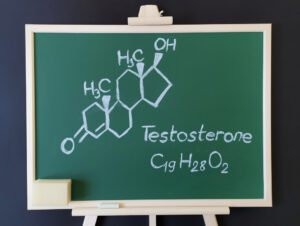As you age, your body’s natural testosterone levels begin to decrease. While there are several popular supplements and treatments of various complexities out there, one method, in particular, is often inquired about: testosterone replacement therapy (TRT).
Although it sounds promising, there is important information to be aware of before opting for TRT.
First, What Is testosterone?
testosterone is the primary sex hormone produced in the testicles. testosterone plays a crucial role in maintaining:
- Facial and body hair
- Production of red blood cells
- Bone mass and density
- Muscle strength and mass
- Fat breakdown and distribution
- Regulate sex drive
- Sperm production
- Mood and quality of life
Other Causes of Low testosterone
Aging isn’t the only cause of decreased levels of testosterone. Several other factors can contribute to low testosterone levels, including:
- Damage to testicles
- Removal of one or both testicles
- Chemotherapy
- Pituitary gland disease
- Congenital hypogonadism
- Reaction to medicine
- Certain genetic conditions
- Obesity
Risks of TRT
There are various risks associated with TRT. They include:
- Acne or oily skin reactions
- Male breast enlargement (gynecomastia)
- Intensified sleep apnea
- Excessive production of red blood cells, which can cause blood clots resulting in strokes or pulmonary embolisms
- Decreased or limited sperm productions
- Testicular atrophy
Prostate Cancer and TRT
One of the biggest risks of TRT is linked to the effects it has on the prostate as TRT can stimulate the growth of noncancerous growth of the prostate. When it comes to prostate cancer and TRT, the water is murky at best — but scientists have been doing their due diligence.
According to a study published in 2017 in the Journal of Clinical Oncology, testosterone replacement therapy (TRT) was associated with an increased risk of favorable-risk prostate cancer among men and a decreased rate of aggressive prostate cancer. Although, it should be noted that the favorable risk disease contributes to a detection bias in these patients.
In 2018, The World Journal of Men’s Health published a study that analyzed the effects of TRT in men. The results determined that TRT was safe and not associated with increased chances of prostate cancer. Results were consistent regardless of the cancer stage, grade, and type of treatment.
As more studies get underway and others conclude, the results appear promising. With that said, at this time, there is not enough evidence to be absolutely certain if TRT would benefit or hurt patients with prostate cancer. We recommend you speak with your physician and talk about whether or not TRT is an option your body can handle and respond well to.
If you have any questions regarding TRT or other hormone therapies, please reach out to us by phone or email.


